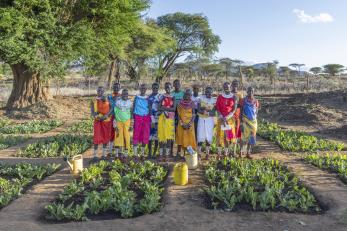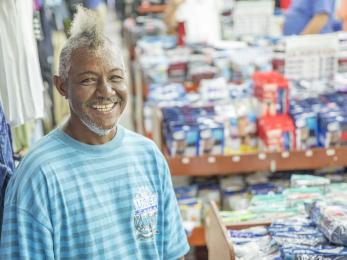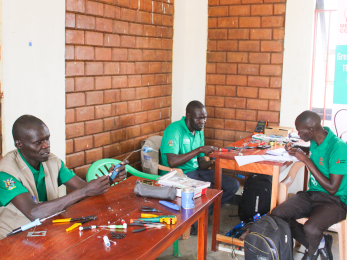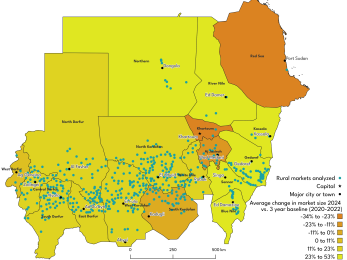Closing the Gap
Evidence and Opportunities for Adapting Poverty Graduation for the Most Fragile Contexts

The Poverty Graduation (PG) approach is one of the most rigorously evaluated models for reducing extreme poverty, with consistent gains in income, consumption, savings, and psychosocial well-being. Yet, most evidence comes from stable, rural settings. In fragile, conflict-affected, and thin-market environments—where poverty is increasingly concentrated—traditional PG models face limits. Household-level “big push” interventions alone are often insufficient for lasting impact.
Drawing on global evidence and Mercy Corps’ program experience, this report highlights evidence-based opportunities to adapt PG for greater inclusion, sustainability, and resilience in fragile contexts.
Key Insights
Link household support to systems change. In thin and volatile markets, household gains often erode without broader system strengthening. Pairing PG with investments in markets, services, and governance enables more sustained and scalable progress.
Expand inclusion. Adolescents, displaced households, and caregivers face barriers that limit participation and impact. Adjusting targeting, sequencing, and delivery approaches can help reach and empower marginalized groups.
Integrate nutrition and food security objectives. Making PG nutrition-sensitive, by aligning livelihoods with food systems and linking to health and WASH services, can strengthen and sustain food security and nutrition outcomes.
Build resilience. Embedding risk-informed and climate-smart approaches within PG helps households and communities protect gains and adapt to shocks and stresses.
Call to Action
Mercy Corps calls on donors, peer agencies, and researchers to act on these opportunities by financing, designing, and evaluating PG models that integrate systems strengthening, inclusion, nutrition, and resilience.
Now is the time to close the gap between proven poverty reduction approaches and the realities of fragile contexts, ensuring that Poverty Graduation delivers durable, equitable, and resilient pathways out of extreme poverty.


